What is Citizen Science and what has it to do with INSIGNIA?
Kristina Gratzer from the University of Graz explains in a mini-interview (German). More videos will follow.
English translation:
Helmut: “Dear Kristina, what does citizen science mean?”
Kristina: “Very briefly, citizen science includes scientific projects that are either carried out completely or, in our case, with the help of laypersons.”
Helmut: “You conduct bee science… Have you experience with citizen science?”
Kristina: “Yes. Currently, we are working in a European Union project called Insignia. There, 82 beekeepers from 10 European countries bi-weekly have taken samples from their own bee colonies, Those samples were processed and further analysed for pesticides and pollen diversity in labs in Spain, Greece and Portugal. Just imagine, doing such large-scale sampling all by yourself and without the volunteers, this would be quite difficult and takes a lot of time.”
Helmut: “That means citizens are able to support science?”
Kristina: “Yes absolutely and the co-working is also enriching.”
By Kristina Gratzer

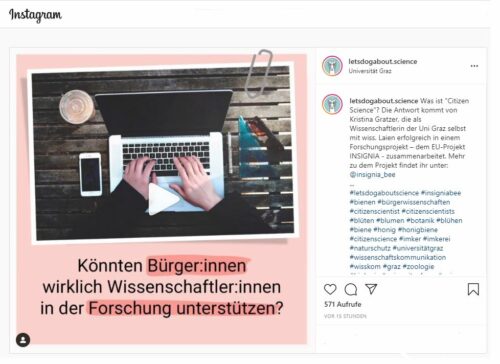

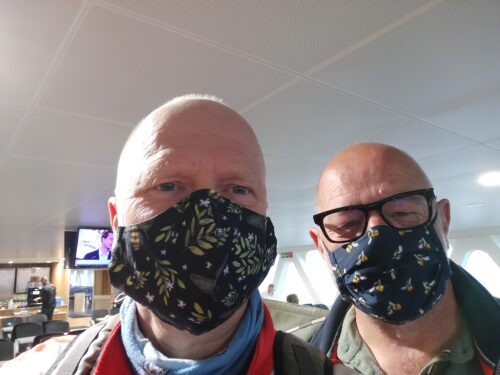
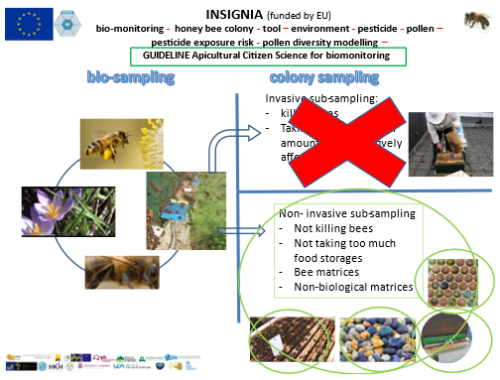
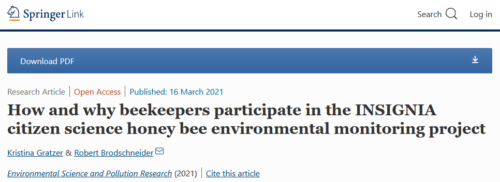
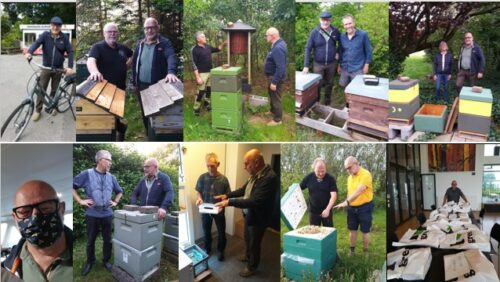
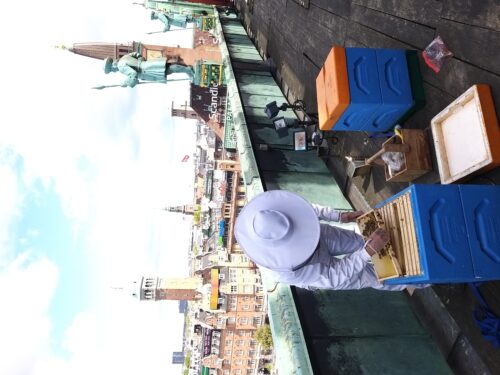
 The INSIGNIA study has been running now for two years and we are entering the final stage. In these two years, we have gone through all stages of organizing an apiculturist citizen science study. We developed the passive sampler APIStrip, the efficient matrix to capture pesticides, and all the pitfalls that came on the way like the “not-to-be -misinterpretable” label, best practice for storage shipping, sampling schemes etc. Now it is time to bring all of this information together in the “Guideline for apiculturist citizen science for applying honeybee colonies for bio-monitoring of the environment – subject pesticides”. Given the Covid-19 restrictions, physical meetings to discuss all of the stages, best wording, most logical set-up, best flow-charts, and whatever it takes to write the best guidelines, would be great but are sadly impossible. Therefore we have started a scheme of virtual Teams-meetings with a strict agenda to go through all of these aspects. We started in December 2020 and will be finished in March 2021. There will be as many Teams-meetings as it takes to get the job done in time.
The INSIGNIA study has been running now for two years and we are entering the final stage. In these two years, we have gone through all stages of organizing an apiculturist citizen science study. We developed the passive sampler APIStrip, the efficient matrix to capture pesticides, and all the pitfalls that came on the way like the “not-to-be -misinterpretable” label, best practice for storage shipping, sampling schemes etc. Now it is time to bring all of this information together in the “Guideline for apiculturist citizen science for applying honeybee colonies for bio-monitoring of the environment – subject pesticides”. Given the Covid-19 restrictions, physical meetings to discuss all of the stages, best wording, most logical set-up, best flow-charts, and whatever it takes to write the best guidelines, would be great but are sadly impossible. Therefore we have started a scheme of virtual Teams-meetings with a strict agenda to go through all of these aspects. We started in December 2020 and will be finished in March 2021. There will be as many Teams-meetings as it takes to get the job done in time.